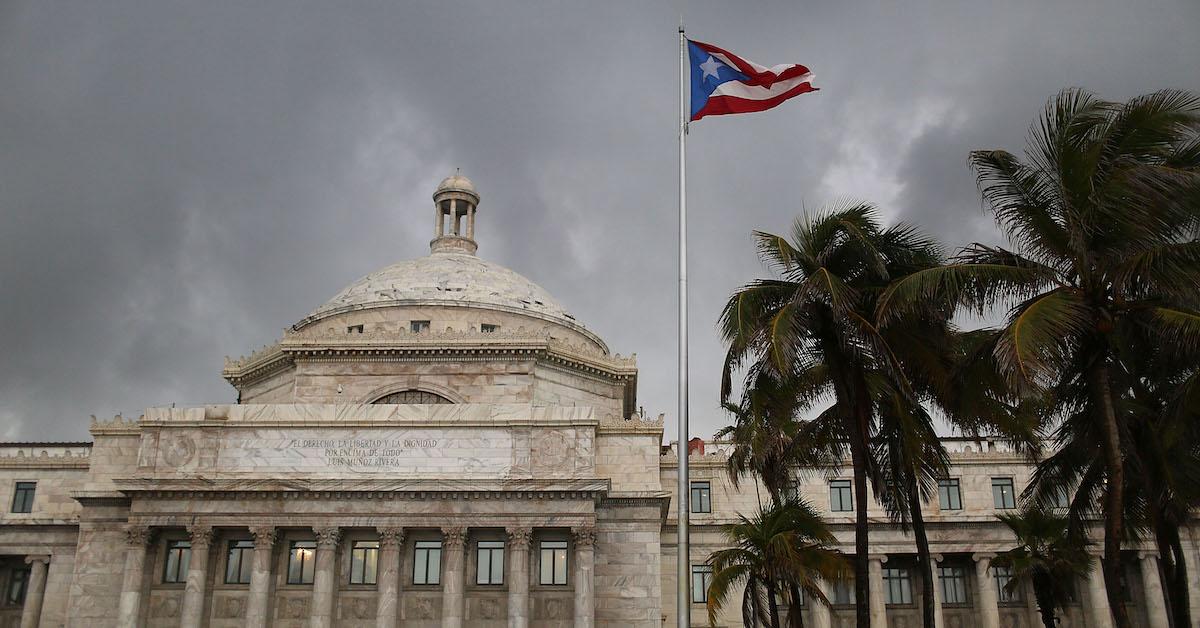SCOTUS Ruling Puerto Ricans Affirms It's OK to Exclude Territories From Receiving Federal Benefits
A SCOTUS decision regarding Puerto Rican's rights (or lack thereof) to federal benefits like SSI has many wondering whether Puerto Ricans pay into Social Security.
April 22 2022, Published 1:08 p.m. ET

An 8-1 decision by the U.S. Supreme Court affirms that U.S. territories like Puerto Rico don't have a constitutional right to federal benefits afforded to U.S. states. The case, United States v. Vaello-Madero, focused on access to Supplemental Security Income (SSI), a program that provides cash assistance to elderly, blind, and disabled Americans with low income.
The ruling has many people wondering whether Puerto Ricans and residents of other territories excluded from SSI pay into Social Security and raised confusion about the difference between SSI and Social Security Disability Insurance (SSDI).

Puerto Ricans do pay and receive Social Security, but they're exempt from other taxes.
While Puerto Ricans and residents of other unincorporated territories don't pay federal income tax, they do pay into Social Security and Medicare and are eligible to receive benefits.
However, while SSI is administered by the Social Security Administration, it isn't funded by Social Security deductions but rather by general funds from the U.S. Treasury, which come from federal income taxes. Some states also have programs that supplement the federal SSI benefit.
The similarity of the acronyms for SSI and Social Security Disability Insurance, os SSDI, and the fact that the Social Security Administration oversees both is a frequent cause for confusion about these two programs.
SSI vs. SSDI — what's the difference?
The biggest distinction between SSDI and SSI, aside from how the programs are funded, is in their eligibility requirements. While both programs provide benefits to people with disabilities and limited income, SSDI has a work history requirement. To qualify, you must have sufficient qualifying work history either on your own or through a spouse or parent.
Qualified SSI recipients, on the other hand, only need to meet the program's low-income criteria and must be either 65 or older, disabled, or blind. In this case, work history isn't a factor.
Another difference is that while qualified SSDI recipients receive health benefits through Medicare after a 24-month waiting period, SSI recipients receive Medicaid.
What the Supreme Court's decision means for Puerto Rico
Understandably, many are concerned about the differential treatment of U.S. citizens who reside in unincorporated territories. They're concerned that the SCOTUS U.S. v. Vaello-Madero means that Puerto Ricans and other citizens in overseas territories won't be able to receive SSDI or that their eligibility for Social Security is compromised. However, the Court's decision doesn't change anything about how either SSI or SSDI runs.
The decision essentially affirms, like Justice Kavanaugh's opinion states, that “The Constitution affords Congress substantial discretion over how to structure federal tax and benefits programs for residents of the Territories.”
President Biden has asked Congress to extend SSI eligibility to Puerto Rico. According to 2019 data, more than 43 percent of the total population lives below the poverty line. For the sake of comparison, the national poverty rate for the same year was 13.1 percent.
However, Biden's words may not amount to much, as many policy experts feel the Court's decision could embolden Congress to not only preserve the current differential treatment but lead to further exclusion of unincorporated territories from other federal assistance.
